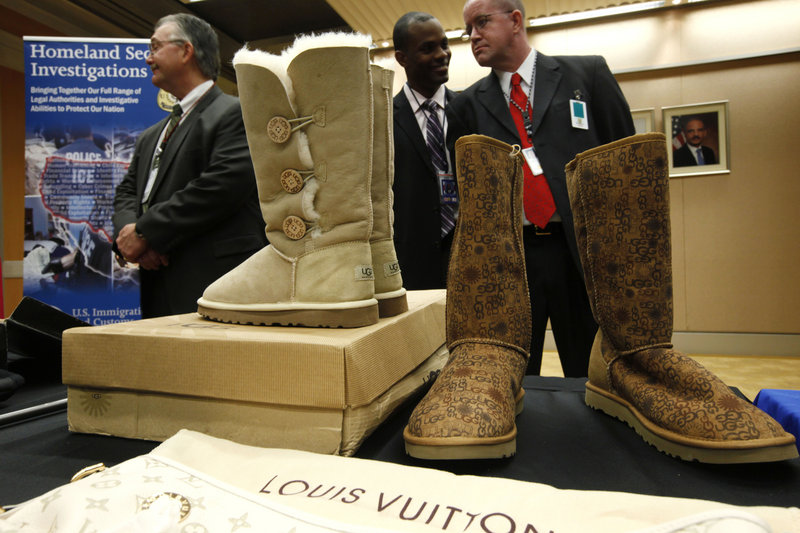WASHINGTON — Federal customs agents have seized 82 websites accused of trafficking in handbags and other counterfeit goods, escalating a crackdown against knockoffs that increasingly have moved online, the Justice Department said Monday.
The seizures, announced on the “Cyber Monday” online shopping day, targeted sites selling an array of products, including fake Coach purses, counterfeit sports equipment and a Disney DVD set with Minnie Mouse’s name misspelled.
U.S. Immigration and Customs Enforcement agents, acting on seizure orders issued by federal judges in Washington and nationwide, shut the websites over the past few days and seized the domain names. People trying to find the sites are directed to an ICE server, which notifies them that the domain name has been grabbed by federal authorities.
The investigation, coordinated by an ICE-led intellectual property rights center in suburban Crystal City, Va., is the latest step in a crackdown on trafficking in counterfeit goods. That response has been controversial among some who make their living via the Web. But experts say it is necessary to address a counterfeiting problem that has mushroomed with globalization and lower trade barriers.
“Counterfeiters are prowling in the back alleys of the Internet, masquerading, duping and stealing,” ICE Director John Morton said at a news conference announcing the seizures, which was timed for Cyber Monday and the holiday season.
Displayed on a table at the Justice Department were samples of the fake goods, including a backpack posing as a Louis Vuitton bag, a “Coach” purse with plastic on the handles (dead giveaway, agents said) and a Donovan McNabb Washington Redskins jersey with a fraudulent NFL seal.
Officials say websites selling fakes are increasingly sophisticated and difficult for consumers to detect, but ultralow prices should raise a red flag.
“To put it simply: If a deal seems too good to be true, it probably is,” said Attorney General Eric Holder. Justice Department officials said the sale of fake goods costs the U.S. economy billions annually in lost tax revenue.
It is against the law to sell counterfeit trademarked goods – though not to purchase them – and law enforcement officials said a criminal investigation of the seized websites is under way. But they cautioned that it will be difficult to bring charges, since most of the fraudulent goods were made in China. Domain names are registered in the U.S., which gives the government authority to seize them. The move was welcomed by companies including Coach, which over the past 1½ years has filed 325 lawsuits against manufacturers and stores accused of distributing knockoffs.
Send questions/comments to the editors.



Success. Please wait for the page to reload. If the page does not reload within 5 seconds, please refresh the page.
Enter your email and password to access comments.
Hi, to comment on stories you must . This profile is in addition to your subscription and website login.
Already have a commenting profile? .
Invalid username/password.
Please check your email to confirm and complete your registration.
Only subscribers are eligible to post comments. Please subscribe or login first for digital access. Here’s why.
Use the form below to reset your password. When you've submitted your account email, we will send an email with a reset code.